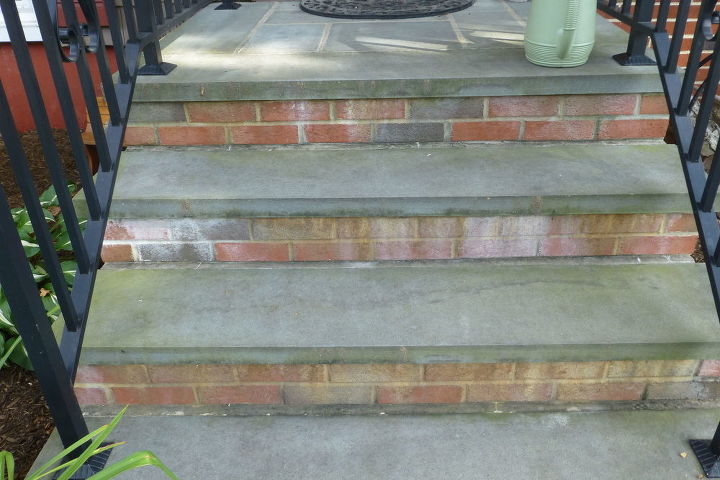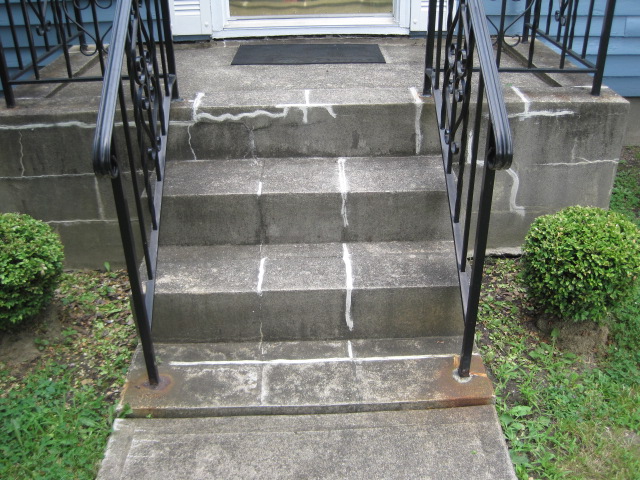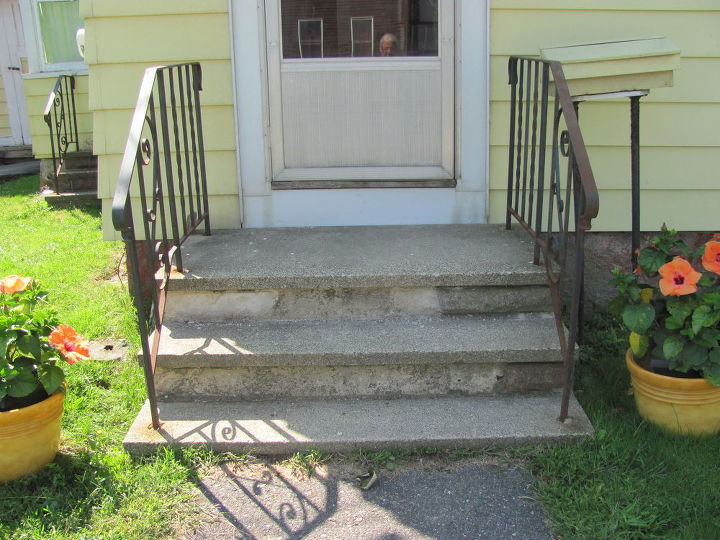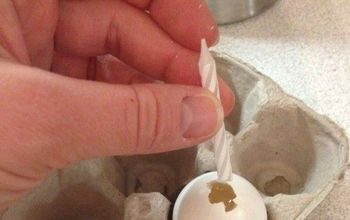Problem with brick/bluestone steps
The bricks on my 5 year old steps look terrible. No matter how much I spray them, the white comes through and they look like the contractor used 'old' bricks, not new ones. The bluestone is O.K., but the grout is breaking up. Can I put porcelain tiles over the bricks? Will they hold? What kind of glue can I use? Thank you in advance for your help.
Related Discussions
Vinyl plank flooring vs pergo (laminate)
I currently have stinky dirty carpeting in my living room and I want to replace it with a durable flooring that can stand up to dogs and kids.
How to remove popcorn ceiling that has been painted?
Does having a paint over a popcorn ceiling change how I'd remove the popcorn ceiling?
How to apply peel and stick wallpaper?
I want to spruce up my walls with peel-and-stick wallpaper. Has anyone used this before and can advise me as to how to apply it properly?
How to stain wood floor?
I've heard staining is a good technique for updating floors. So how do I stain my wood floor?
Any ideas for making my front porch more attractive?
I really don't like painted steps and my husband caulked the porch where there were cracks and I don't like the looks of it at all. Any suggestions?
Concrete steps/railing/screen door help
I do have the concrete pieces for the risers (how to reattach?), paint the railings white and I was thinking of painting the concrete - what color & what to use. Firs... See more




"Nitterhousemasonry.com" will explain this in detail (or "thisoldhouse.com") but you most likely have new brick with efflorescence. It occurs when brick absorbs salt or water from the air, etc. This is why most contractors cover brick prior to installation. The "salts" will take some time to leach out, and yes, it is unsightly, particularly on darker brick, but if you drive around, you'l notice its occurance on driveway block walls, as well.
Nothing is wrong with the bricks. Your builder did not use old bricks or substandard materials. This is efflorescence, a natural occurrence. See if this helps.
https://etbricks.co.uk/index.php?p=articles-efflorescence-on-bricks-causes-prevention-removal
http://www.masonryconstruction.com/how-to/repair-rehab/removing-efflorescence-from-brick-and-stone-masonry_c
http://www.deckerhomeservices.com/what%20is%20efflorescence.htm
Have you tried scrubbing them with CLR? It looks like it could be hard water stains. If that doesn't work, you can always scrub with muriatic acid. Make sure you wear thick gloves, eye protection, and a mask.
Water penetrating the brick and mortar forces the "salts" to surface causing efflorescence. Power washing your introducing water and aggravating the situation.
If you’re in a pinch, using household diluted white vinegar can be used on efflorescence. It’s less harmful than industrial chemicals and you most likely already have vinegar in your kitchen.
With a strong brush, you can remove efflorescence with ease.
Removing efflorescence can be quick and simple. In fact, efflorescing salts are water-soluble, which means efflorescence may disappear on its own due to normal weathering.
To clean efflorescence off brick, it is crucial to complete this task in warm, dry weather. At this point, moisture may bring additional salts to the surface of brick, and the salts can be removed by dry brushing.
Applying an impregnating hydrophobic sealant to a building material surface can prevent the absorption of water. The sealant also will stop water from traveling within a building material.
Thank you for your advice. I shall try this within the next few days and appreciate your help. Best, Arline